Abstract
Personal interviews were conducted with a representative sample of 536 urban Black youth at two points in their life cycle: first when they were adolescents, aged 12--17, and six to eight years later when they were young adults, aged 18--23. A total of 47 health problems for males, 48 for females, were inquired about each time. Longitudinal analysis was performed to determine the extent of change, the direction of change, and the health problems most subject to change. The number of health problems increased for both sexes, but the increase was significantly greater among males than females. Male and female morbidity count, thus, became nearly equivalent in young adulthood whereas, in adolescence, young women's had exceeded men's. More detailed age analysis revealed that the greatest increase in male's health problems occurred two years behind that for women: for men, between ages 17 and 18; for women between ages 15 and 16. With but few exceptions, the same health problems which dominated in adolescence continued to be most prevalent in young adulthood. Population prevalence rates, however, understate the considerable degree of shift or turnover in individual cases reporting health problems as well as in general health status as measured by the total number of those problems.
Full text
PDF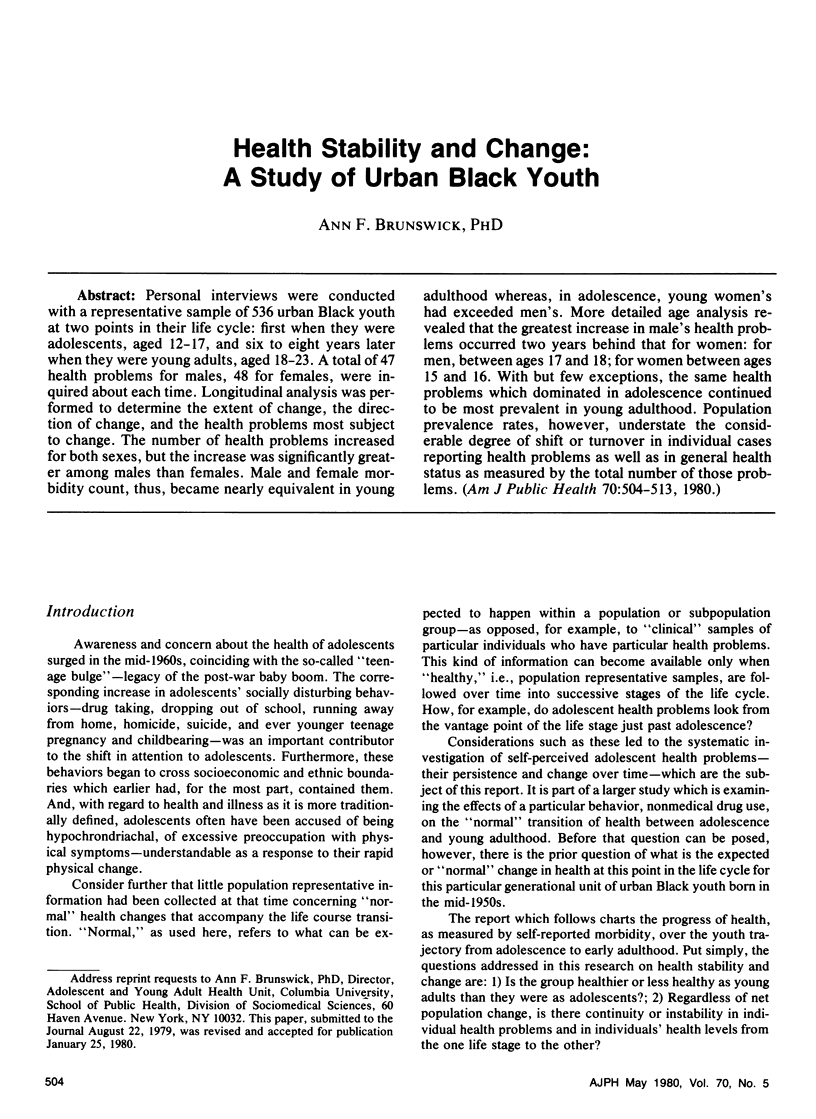
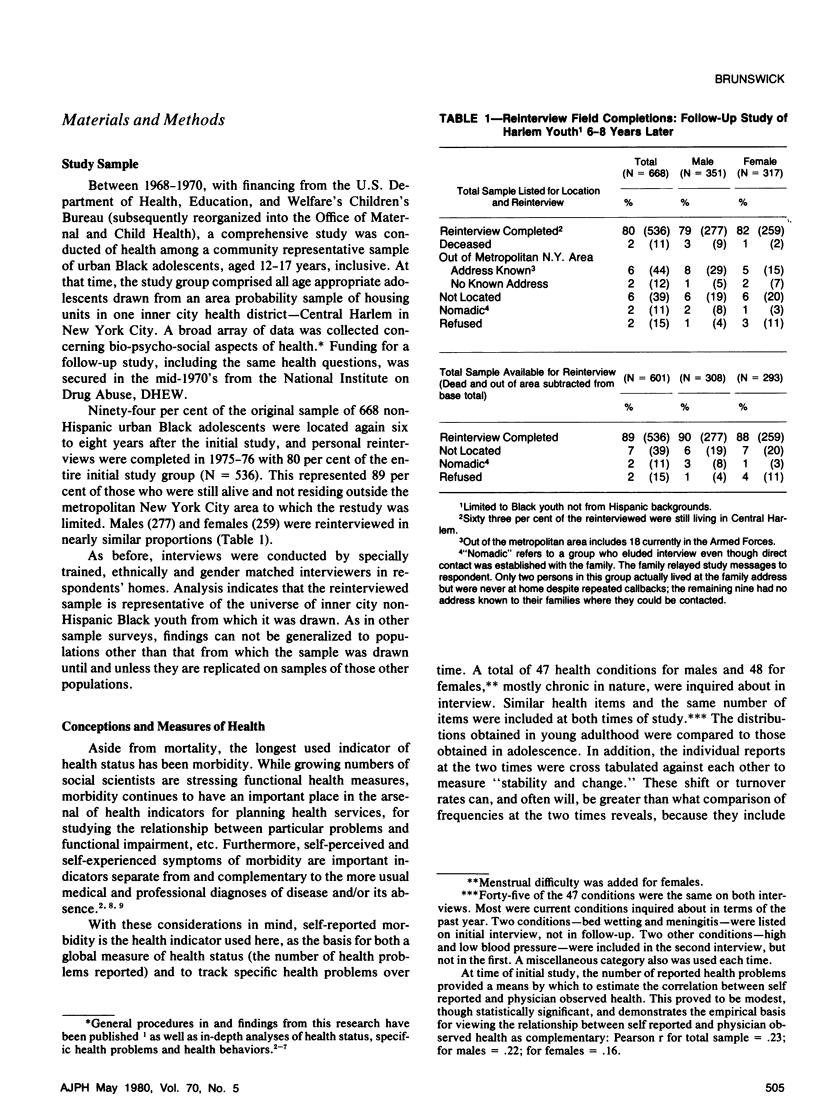
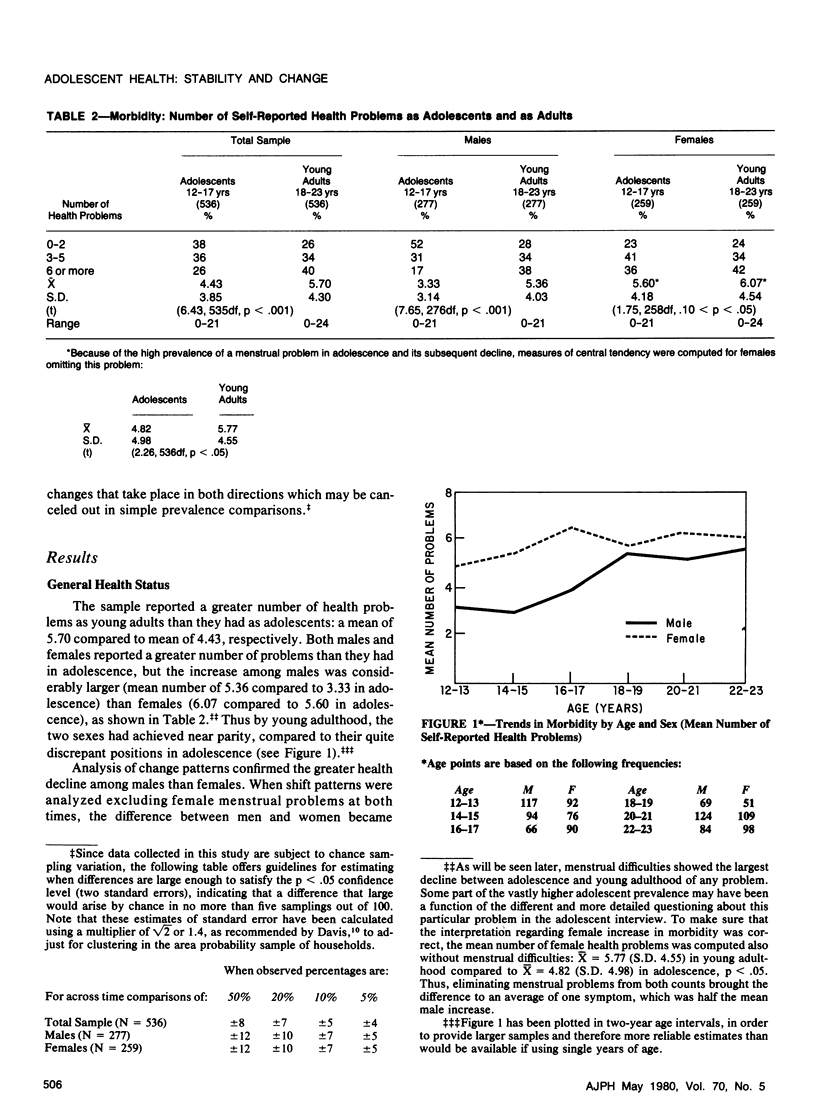
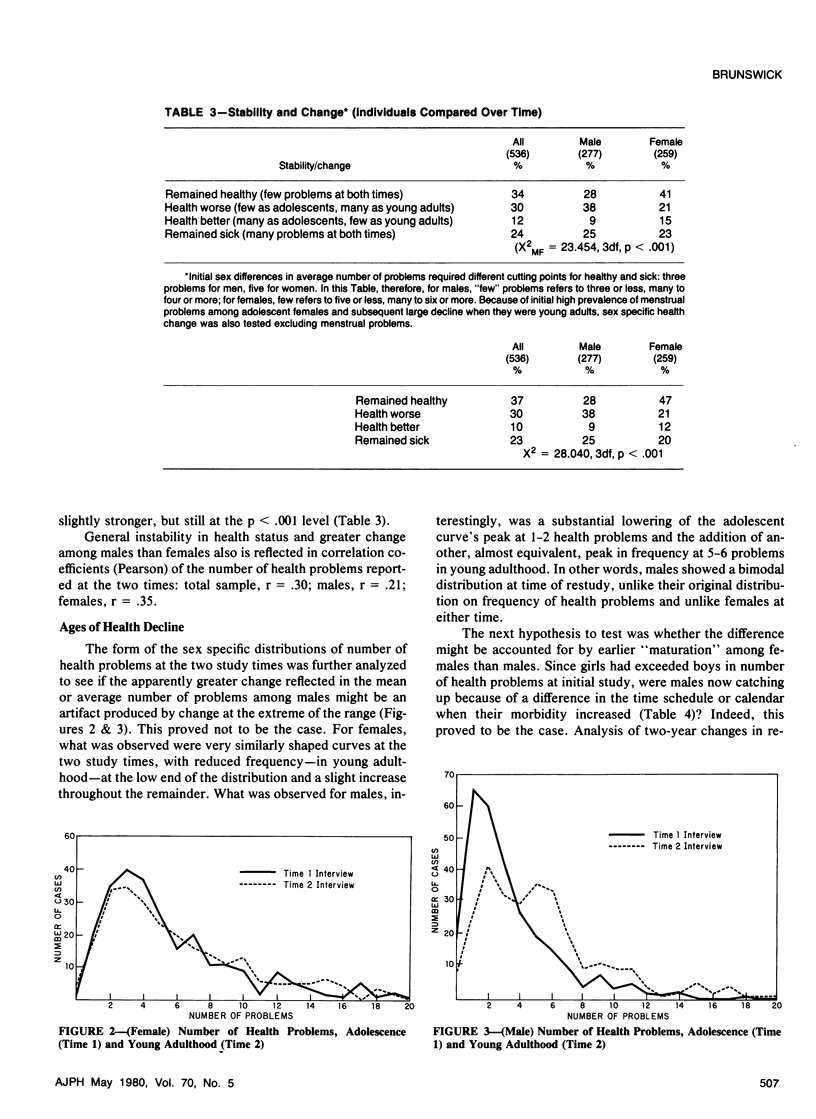
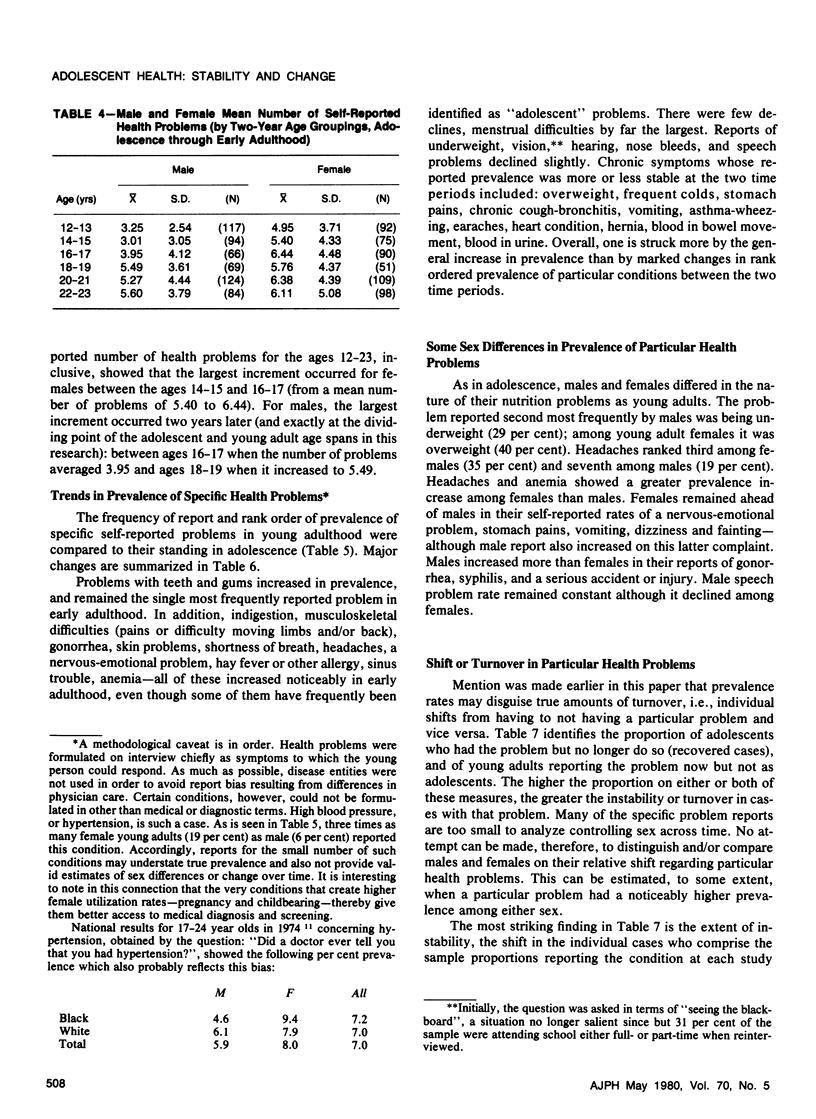
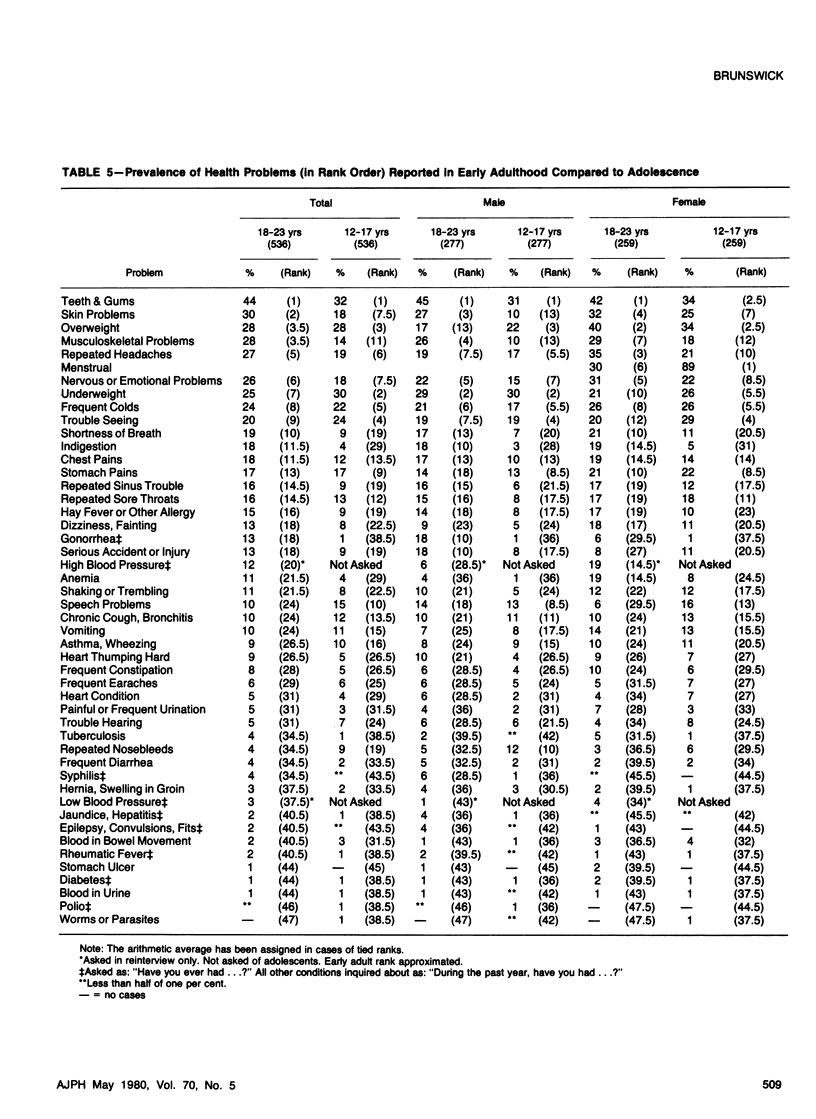
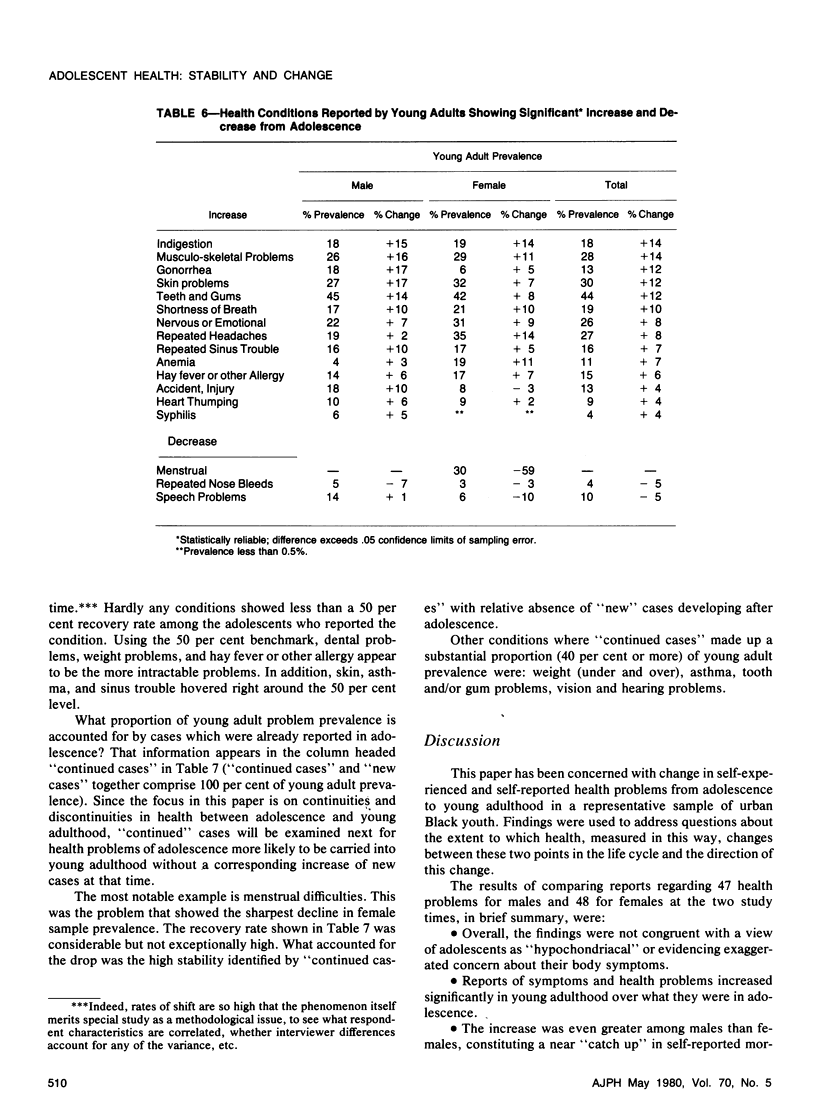
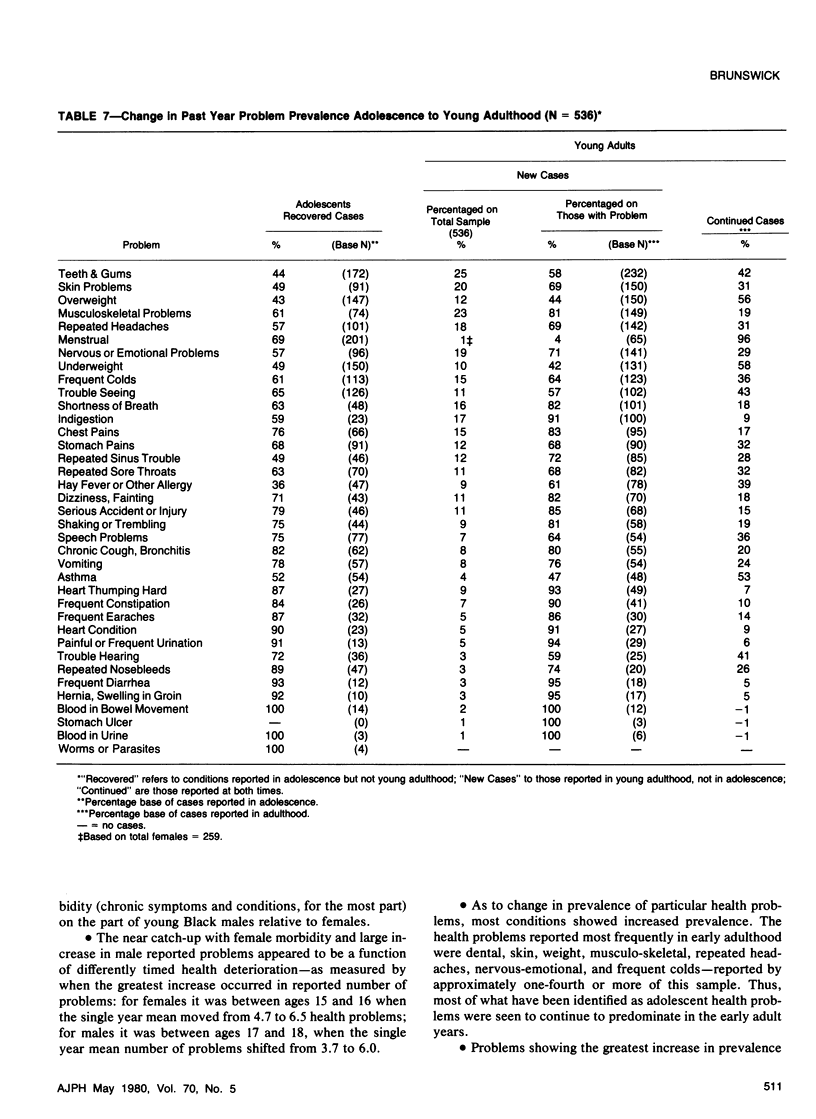
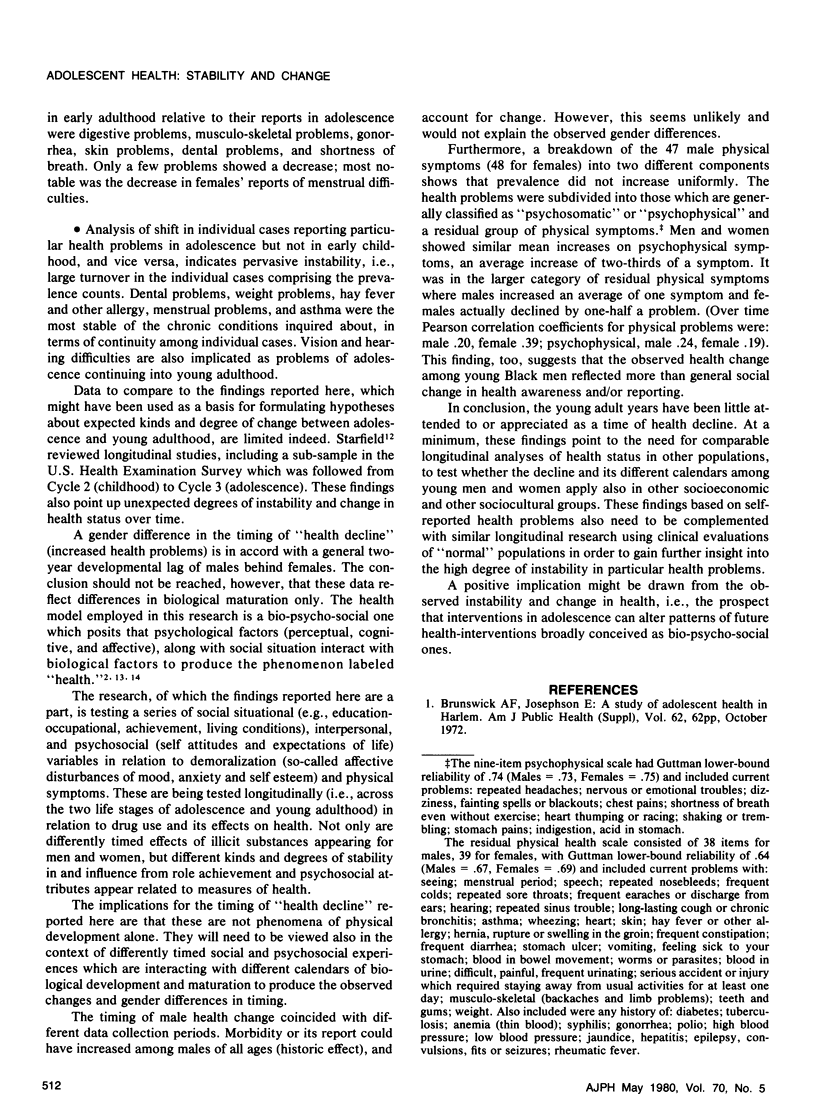
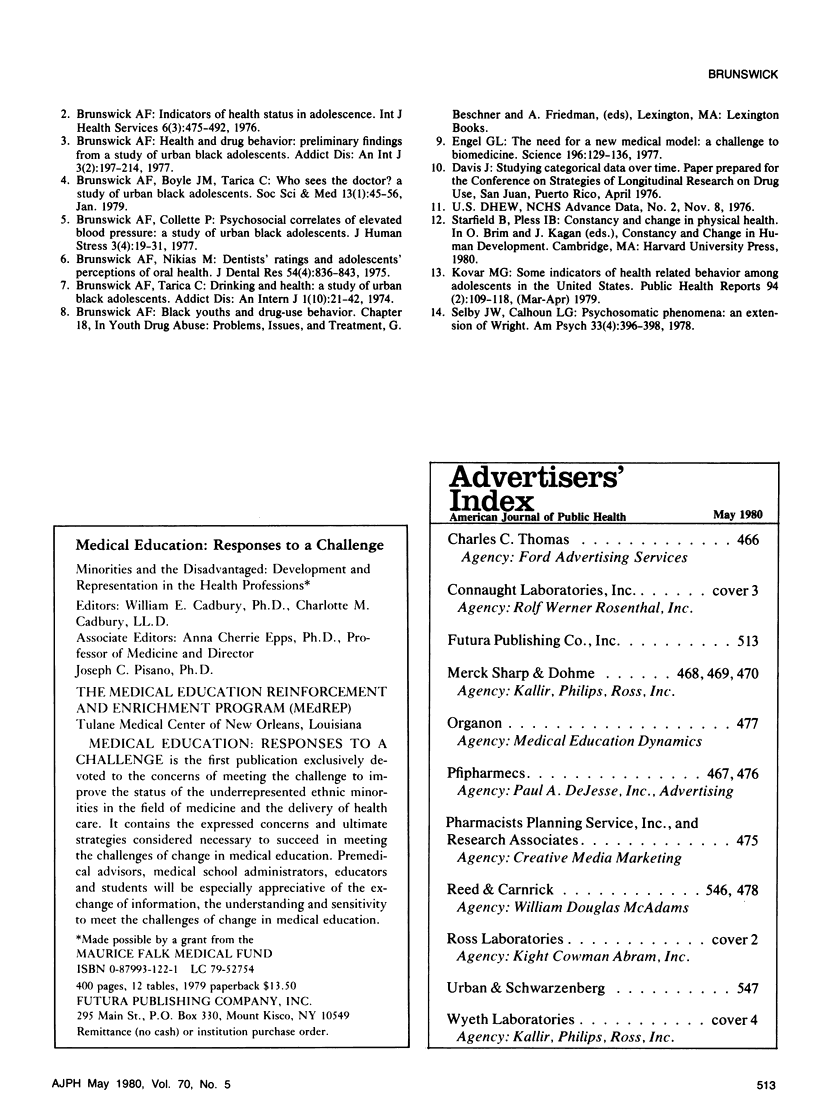
Selected References
These references are in PubMed. This may not be the complete list of references from this article.
- Brunswick A. F., Boyle J. M., Tarica C. Who sees the doctor? A study of urban black adolescents. Soc Sci Med Med Psychol Med Sociol. 1979 Jan;13A(1):45–56. doi: 10.1016/0160-7979(79)90007-9. [DOI] [PubMed] [Google Scholar]
- Brunswick A. F., Collette P. Psychophysical correlates of elevated blood pressure: a study of urban black adolescents. J Human Stress. 1977 Dec;3(4):19–31. doi: 10.1080/0097840X.1977.9936817. [DOI] [PubMed] [Google Scholar]
- Brunswick A. F. Health and drug behavior: a study of urban black adolescents. Addict Dis. 1977;3(2):197–214. [PubMed] [Google Scholar]
- Brunswick A. F., Nikias M. Dentist's ratings and adolescents' perceptions of oral health. J Dent Res. 1975 Jul-Aug;54(4):836–843. doi: 10.1177/00220345750540042301. [DOI] [PubMed] [Google Scholar]
- Engel G. L. The need for a new medical model: a challenge for biomedicine. Science. 1977 Apr 8;196(4286):129–136. doi: 10.1126/science.847460. [DOI] [PubMed] [Google Scholar]
- Kovar M. G. Some indicators of health-related behavior among adolescents in the United States. Public Health Rep. 1979 Mar-Apr;94(2):109–118. [PMC free article] [PubMed] [Google Scholar]
- Selby J. W., Calhoun L. G. Psychosomatic phenomena: an extension of Wright. Am Psychol. 1978 Apr;33(4):396–398. [PubMed] [Google Scholar]


